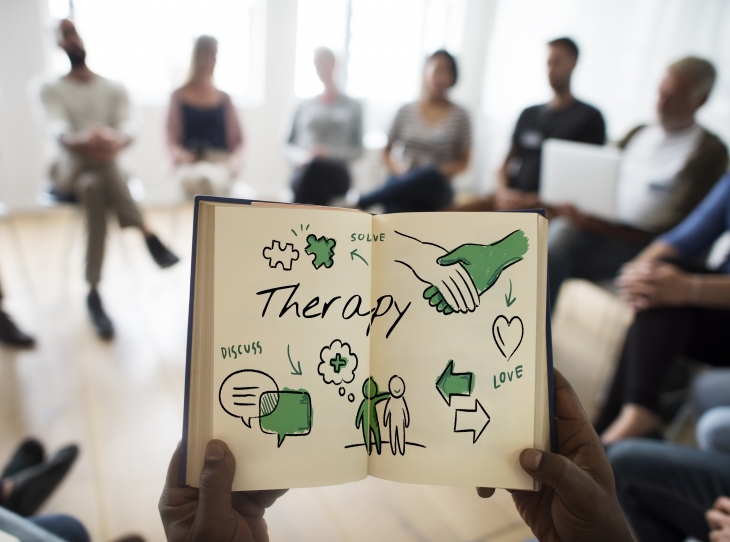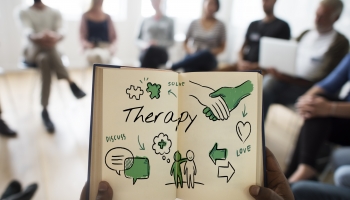
Recovery support groups are wonderful tools for achieving and maintaining successful, long-term addiction recovery. They are a form of组治疗that is available free of charge all over the world, with no membership requirements other than the desire to lead a life free of substance abuse.
These groups support recovery by providing a judgment-free environment where members can show acceptance and offer validation. Through honest, confidential discussion, recovery groups allow members to learn from one another’s experiences, vent and explore feelings that might otherwise reach a crisis point, and give and receive feedback on individual situations and challenges. They are a form of addiction recovery treatment that is offered from peer to peer so that members have the comfort of knowing that everyone involved has an intimate understanding of what it is like to have and recover from addiction.
组治疗Activities for Adults in Recovery
As a way of encouraging recovery progress, or supporting continued recovery success, manysupport groupsuse specific activities to keep their members engaged. Here are some substance abuse recovery group activities that you could use at your next meeting.
-
- 让小组识别并讨论物质滥用的共同触发。建议在触发时可以使用不同的应对策略来保持清醒。
- 讨论男女的一些陈规定型方式,预计会响应痛苦的感受,如“戏剧皇后”的女性和“勇敢的人”。哪一个社会认为更有利?男人可以成为戏剧皇后女士,女人是艰难的家伙吗?是否存在这些刻板印象的品质,实际上是积极的,例如戏剧女王的坦率的开放,以及强硬的家伙的恢复力?
- 要求集团成员通过分享三个奇怪,有趣或有趣的事情来介绍自己。
- 有一个团体讲座和/或关于成瘾神经科学的讨论。
- Pass around a hat or a bowl, and have everyone place a slip of paper with a fear written on it inside. Have a group leader draw out the fears and read them one at a time for the group to discuss. How might a person develop such a fear? What kinds of things could they do to combat it?
- Hold a discussion ongratitude. What is it? What do the group members feel grateful for? What are the benefits of gratitude and how can we experience more gratitude in life?
- 将纸张涂抹在其中一个大瓶子上,两条线绘制在瓶子上,在内部形成三个不同的层。使用顶层写三件事关于您现在的感受,使用中间层来到过去的三种方式,并使用底层以“猜测”在您尝试隐藏自己的深处。明确说,参与者不必分享他们写的任何东西,所以他们会随意探索潜在的令人惊讶的情绪。
- Talk about relapse. What would be the consequences of abusing substances again? What would be positives of using again? What would be the negatives?
- 讨论压力和压力管理。识别压力硕士,谈谈应对它们的方法。讨论未能应对的后果。讨论上行的压力,即某些形式的压力可以在你的生活中发挥积极作用。
- Discuss the nature of mistakes and imperfections—can you make mistakes and still be a good person? Can you know that you are imperfect and still feel proud of yourself? On a piece of paper, write three to six sentences that state, “I might be [something negative], but [something positive],” i.e., “I might lose my temper easily, but I am learning not to take it out on others.”
- 谈谈英雄和榜样。谁在成长时仰望谁?你当前的英雄是相同还是不同的?你能看到英雄中的不完美,仍然欣赏他们吗?如何使用这些角色模型来激发自己的恢复?
- Have everyone write out a list of self-affirmation, then select one or more of these to share with the group. These can be general affirmations that might help anyone or targeted affirmations that celebrate the qualities that make you unique. Help group members who might be struggling with this by brainstorming affirmations for them.
- If you could have a talk with your childhood self, what would you say? What advice would you give them? How might you direct them to live your life differently?
- Ask the group to visualize themselves lost at sea in a storm at night. Just as they are starting to lose hope, they see a glimmer of light. Rowing hard, they use it to guide them to shore, where they are given dry clothes, a hot meal, and a cozy place to sleep. Imprint this image in your mind, or perhaps even draw a picture of it, so you can use it again for guidance in your real life. Write or think of words to represent things that offer you guidance, such as hope, family, and recovery milestones.
- 谈谈谨慎和生活中的重要性。如何在恢复方面保持帮助?如何陷入困境,你不能改变的东西,以及可能永远不会发生的事情,伤害恢复?在此刻,您如何平衡计划未来的未来?
- 带来一堆纸袋和笔或标记。请小组成员用代表他们向世界所展示的自我的文字和图像装饰他们的行李外面。用代表很少人看到的隐藏品质的单词和图像装饰袋子内部。
- What support systems do you have in your life? These can be people, activities, ways of thinking or anything at all that supports your continued recovery. How do you and other group members support each other? What else can you do to be open to giving and receiving support?
- Talk about the importance of good nutrition. What are your healthy eating goals, if any, and how do you plan to meet them? What kind of relationship do you have with food? How can having a healthy relationship with food improve addiction recovery?
- 谈谈运动和身体活动的重要性。你的健身目标是什么,如果有的话,以及你打算如何满足他们?你经常运动吗?富有效益恢复有哪些好处?
-

成瘾支持组是一种免费疗法选项,可以帮助您实现成功恢复。
Talk about the importance of sleep. Do you get enough sleep? Do you get too much? Are there changes you need to make to improve in this area, and how should you go about it? Talk about the importance of good sleep hygiene (avoiding too much caffeine, avoiding screen time right before bed, getting up at the same time each day, etc.).
- 画画或涂上自然界的图片,这些东西已经找到了一种在恶劣的环境中茁壮成长的方法,例如沙漠中的仙人掌,或从人行道上爆裂的树根。面对挑战,谈论自己的恢复力,以及如何在未来学会更具弹性。
- 为会议带来一些忠诚的练习和光学幻想。与他们一起玩后,转变为关于我们感官的识别和观点的讨论。谈论人们如何根据他们是谁和手头的情况来察觉。
- Discuss the power of words, and how certain words and phrases can have a big impact on our feelings and behavior. Talk about the kind of words that can hurt and the kind that can lift you up. Can you think of any words that are strongly linked to your addiction? How can you use your word choices to help or hurt yourself and others?
- Take a sheet of paper and write out three negative beliefs you struggle with, such as “you’re weak.” Then write out three positive responses to those comments, such as, “you get stronger every day,” or “you keep working hard, no matter what.” If anyone has trouble coming up with a positive response, ask for help from the group.
- Talk about forgiveness and its importance. Think of someone in your life that you would like to forgive. What would you say to them? What would you hope they would say back?
- Share with group members where you are in your recovery journey. Talk about your accomplishments and your goals. Ask for feedback and advice from the rest of the group.
- Discuss self-care. Do you regularly do anything to care for yourself? What kinds of things can you start doing just to show yourself a little kindness? Why is it important to show ourselves kindness in this way?
- 传递预先印刷的人类轮廓和标记或蜡笔。有集团成员使用图像,颜色和单词,以表现出愤怒和情绪痛苦,如胃中的绿色球来代表内疚,或者红鼻耳眼睛展示愤怒。然后绘制治疗和冷却图像,除了那些情绪之外,例如音乐笔记和“这不是你的错”。
- Make a list of the best and the worst moments in your life. Why do you label them as good or bad? What are the differences and similarities? Do you notice any patterns? Would you erase the bad moments from your life if you could, or have they given you something valuable that you want to hold onto?
- Pretend that you are giving a speech to teenagers about the dangers of substance abuse. What stories would you tell them? What advice would you give them?
- Think of emotional problems you face, such as depression or a bad temper. Then write about or discuss how these emotions might serve you, such as the way your depression forces you to slow down and rest when you’re overwhelmed. Then write about or discuss ways you can serve the same purpose in a more positive way, such as allowing yourself regular sessions of peaceful self-care to stave off overwhelm.
- 讨论孤独。你能独自一人而不是孤独吗?是什么让你感到孤独?您在单独花费的时间和与他人共度的时间之间需要哪些平衡?你能做什么来保持你生活中的平衡?
- Discuss how treatments for physical illnesses like broken bones or infections are similar to treatments for psychological illnesses like addiction. Brainstorm ideas for the ideal hospital or retreat to provide you with mental and emotional healing. Be specific about anything that would help you personally—food, entertainment, animals, activities, etc.
- 写出通常的例程。添加一个可帮助您提高身体,情感,精神或精神健康的一项活动。例如,您可能会决定在观看电视的同时锻炼而不是坐在沙发上,或者您将在睡觉前每天晚上练习感激之情。告诉议员报告他们是否随后遵循下次会议。
- 选择一个不介意与小组讨论的坏记忆。首先,分享发生了什么,然后讨论如何“修复”它,如果您可以,通过为您的过去的自我提供诸如知识,支持或援助,这些工具将改善或阻止情况。让小组参与每个内存“修复”。
- 想象你是一个汽车需要一个完整的坦克of gas to get where you’re going. Your engine doesn’t run on gas, of course, but what does it run on? What activities, thoughts, events, people, etc., do you need to fill your tank so you can get where you need to go in life?

